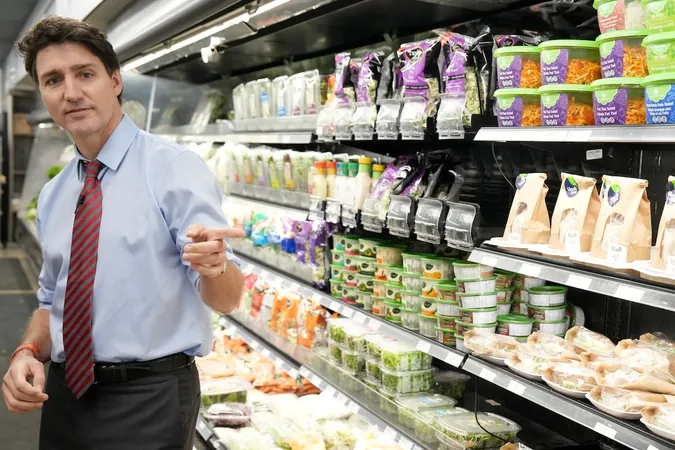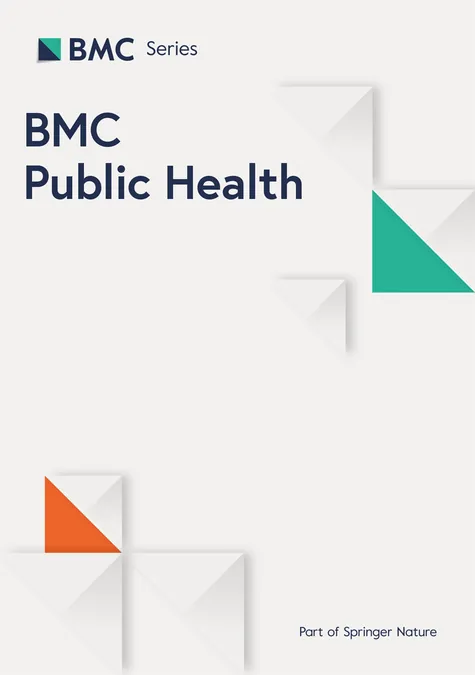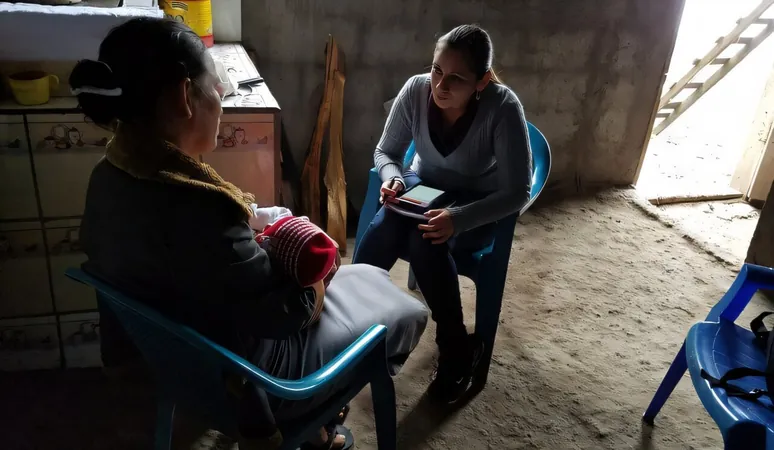
Are the Recent Government Measures Enough to Combat Affordability Issues in Canada?
2024-11-27
Author: Liam
In a bold attempt to address the pressing issue of affordability in Canada, the federal government recently unveiled two new initiatives – the "Working Canadians Rebate" and a temporary "GST/HST break for groceries and holiday essentials." These measures are aimed at easing the financial burden Canadians are facing today, but are they truly effective in alleviating the struggles of those who need it most?
Affordability has become a critical concern for many Canadians. According to Statistics Canada, the median after-tax income for families and unattached individuals dropped to $70,500 in 2022, down from $73,000 the previous year when adjusted for inflation. Alarmingly, the poverty rate increased sharply, climbing to 9.9% in 2022, up from 7.4% in 2021, and nearing figures recorded before the pandemic. As the cost of living continues to rise, this trend shows no signs of reversing.
Let’s delve into the "Working Canadians Rebate," which comes at a staggering cost of approximately $4.68 billion. The government plans to provide a one-time tax-free cheque of $250 to each of the 18.7 million Canadians earning $150,000 or less in 2023, regardless of their actual income. This one-size-fits-all approach fails to effectively target those who are truly in need. A more equitable strategy might have incorporated a sliding scale of benefits, ensuring that lower-income individuals received more substantial support, while high earners received less, thereby making the system fairer and more sustainable.
Furthermore, to qualify for the rebate, individuals must submit their 2023 tax return by year’s end. However, many low-income earners do not file tax returns, meaning they would receive no assistance at all. This also excludes retirees on fixed incomes who may have filed but did not earn employment income. Such exclusions call into question the effectiveness of the rebate in delivering genuine financial relief.
As for the two-month "GST/HST break for groceries and holiday essentials," scheduled from December 14 to February 15, which is expected to cost approximately $1.6 billion in lost revenue, the initiative has sparked concern. The list of items eligible for tax relief includes not only crucial essentials but also snacks, prepared foods, and even gaming consoles. This broad selection indicates that higher-income Canadians could also benefit significantly from this measure, undermining the intention to provide support for those in dire financial situations.
Additionally, the government's portrayal of these measures as direct benefits from their policies seems disingenuous, given that provinces will absorb a large portion of the costs. The federal government has not guaranteed reimbursement for lost provincial revenues, casting doubt on their commitment to cooperative federalism. The reality is that much of the funding is derived from provincial sources, yet Ottawa reaps the political rewards.
Moreover, every new spending initiative results in further borrowing. The combined cost of these two measures is estimated at $6.28 billion, which complicates an already precarious fiscal situation. Recent estimates from the Parliamentary Budget Officer (PBO) indicated last year’s deficit at $46.8 billion, which if continued on this trajectory, could exceed $50 billion. This scenario raises concerns about future governmental financial health and could lead to higher taxes or reduced services for Canadians.
In summary, the federal government's recent affordability measures, while well-intentioned, seem to miss the mark, benefitting a broad range of individuals rather than those in urgent need. As the economic landscape continues to shift, Canadians may find themselves questioning the effectiveness of these initiatives and pondering whether the government can truly address the affordability crisis through more targeted and thoughtful policies. The upcoming fall economic statement may shed light on how the government plans to navigate these challenges moving forward.









 Brasil (PT)
Brasil (PT)
 Canada (EN)
Canada (EN)
 Chile (ES)
Chile (ES)
 España (ES)
España (ES)
 France (FR)
France (FR)
 Hong Kong (EN)
Hong Kong (EN)
 Italia (IT)
Italia (IT)
 日本 (JA)
日本 (JA)
 Magyarország (HU)
Magyarország (HU)
 Norge (NO)
Norge (NO)
 Polska (PL)
Polska (PL)
 Schweiz (DE)
Schweiz (DE)
 Singapore (EN)
Singapore (EN)
 Sverige (SV)
Sverige (SV)
 Suomi (FI)
Suomi (FI)
 Türkiye (TR)
Türkiye (TR)